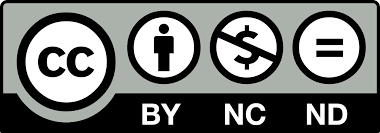Minimum Wage and Its Impact on the Job Market in Germany
Krzysztof Nyklewicz
Department of Social Policy and Insurance, Faculty of Economics, University of Warmia and Mazury in OlsztynAbstract
The introduction of the national minimum wage in Germany in 2015 is an important yet controversial instrument of labour market policy. This paper represents an attempt to define the scope of influence it has on companies and employees in respective branches of economy (accommodation and food services business, retail trade, manufacture of food products, transportation and warehouse management). In order to accomplish it the method of analysis and criticism of literature has been applied. It allowed to conduct an evaluation of the discussed dependence.The preliminary findings indicate that interference is especially high in the low wages sector. To show the consequences the national minimum wage has on the job market, positive changes in employment and unemployment levels in the given period (the increase in the first and the drop in the second one) were presented. This meant that the fears concerning a few thousand job losses, as a result of introducing the minimum wage, were unjustified. In this paper articles and analyses published by German research institutes were used. The statistical data comes from the databases of these institutes and of the Federal Employment Agency. The research period considers the years 2014-2015, specifically one year before and half a year after the introduction of the minimum wage in Germany with the aim of highlighting the changes in the employment size caused by the minimum wage.
Keywords:
minimum wage, branch, employment, GermanyReferences
Bellmann L., Bossler M., Gerner H.-D., HUbler О. 2015. Reichweite des Mindestlohns in deutschen Betrieben. IAB Kurzbericht, 6: 1-8.
Berge von PH., Kaimer S., Copestake S., Eberle J., Klosterhuber W., KrUger J., Trenkle S., Zakrocki V. 2016. Arbeitsmarktspiegel. Entwicklungen nach Einfuhrung des Mindestlohns (Ausgabe 1). IAB Forschungsbericht, 1: 1-64.
Bosch G., Kalina Th., Weinkopf C. 2009. Warum Deutschland einen gesetzlichen Mindestlohn braucht. WISO direkt. Friedrich Ebert Stiftung, Bonn.
Bosch G., Weinkopf C. 2014. Zur Einführung des gesetzlichen Mindestlohns von 8,50 в in Deutschland. Hans Böckler Stiftung, Arbeitspapier Number 304, Düsseldorf.
Brenke K., muller K.-U. 2013. Gesetzlicher Mindestlohn - Kein verteilungspolitisches Allheilmittel, DIW Wochenbericht, 39: 3-17.
Franz W. 2009. Arbeitsmarktokonomik. Springer-Verlag, Berlin, Heidelberg.
Herzog-Stein A., Lindner F., Zwiener R. 2013. Nur das Angebot zahlt? Wie eine einseitige Wirtschaftspolitik Chancen vergeben hat und Europa schadet. IMK Report, 87: 1-22.
Kalina Th., Weinkopf C. 2013. Niedriglohnbeschaftigung 2011. Weiterhin arbeitet fast ein Viertel der Beschäftigten in Deutschland für einen Niedriglohn. IAQ-Report, 1: 1-16.
Kubis A., Rebien M., Weber E. 2015. Neueinstellungen im Jahr 2014. Mindestlohn spielt schon im Vorfeld eine Rolle. IAB Kurzbericht, 12: 1-8.
Lesch H., Mayer A., Schmid L. 2014. Das Mindestlohngesetz: Belastungsprobe für den Arbeitsmarkt. Wirtschaftsdienst, 6: 399-402.
Rhein Th. 2013. Erwerbseinkommen. Deutsche Geringverdiener im europaischen Vergleich. IAB Kurzbericht, 15: 1-12.
Schlten Th., Horn G. 2014. Das Mindestlohngesetz - ein wichtiges Instrument zur Stabilisierung der Lohnentwicklung. Wirtschaftsdienst, 6: 395-398.
Schulten Th., Weinkopf C. 2015. Die Einführung des gesetzlichen Mindestlohns - eine erste Zwischenbilanz. In: Kommt der Mindestlohn überall an? Eine Zwischenbilanz. Eds. S. Körzell, C. Falk. VSA, Hamburg.
Zukunftsfahigkeit in den Mittelpunkt. 2015. Sachverstöndigenrat zur Begutachtung der gesamtwirtschaftlichen. Entwicklung. Statistisches Bundesamt, Wiesbaden.
Department of Social Policy and Insurance, Faculty of Economics, University of Warmia and Mazury in Olsztyn
License
An Author declares that his paper has not been published before (under the same or another title, or is a part of another publication) and does not infringe copyrights of other persons**. At the same time, the Author transfers to the Publisher the exclusive right to publish and to circulate this work in print in the form of a non-serial journal publication and in a form of an electronic publication.
The journal is available on Creative Common license CC-BY-NC-ND






